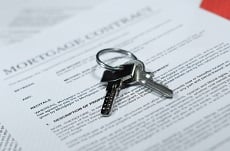
Debt consolidation can be a very confusing concept. Generally speaking, debt consolidation works by combining all of your debts into one payment, often extending your repayment period, resulting in an increased total amount paid. There are four options commonly sought by those looking to get out of a difficult financial bind through debt consolidation and each works in its own way.
1 - Unsecured Debt Consolidation Loan
An unsecured debt consolidation loan involves you taking out a personal loan and using it to pay off your unsecured debts. From that point on you will make one monthly payment toward this loan. This option is managed and executed by you; no help is provided from a third party company or professional.
To pursue this option you need a good credit score in order to be approved and secure a low enough interest rate. This type of loan is not secured against any asset or collateral, increasing the risk for lenders. You will need to prove you are responsible, trustworthy and capable of making full and timely payments. Additionally, the interest rate must be low enough to decrease your total monthly payments if it is going to be a worthwhile debt consolidation option.
This option doesn’t eliminate your debt; an unsecured debt consolidation loan merely moves your debt from one place to another. It may simplify your payment process and give you extra breathing room if you are able to lower your monthly payment. But if you are already in financial trouble, this may just lengthen an already stressful situation.
2 - Home Equity Loan
A home equity loan functions the same as an unsecured debt consolidation loan but it requires you to secure the debt against your home. This reduces the risk of the lender because if you can’t make payments they can take your house. The reduced risk also lowers the credit score requirement. Your credit score doesn’t need to be great in order to be approved for a home equity loan.
However, this is a highly risky option for paying off unsecured debt because you run the risk of losing your house. If you file Chapter 13 bankruptcy you will get to keep your home. This debt consolidation option is managed and executed by you with no third party involvement. It is not a recommended plan for dealing with financial difficulty.
3 - Debt Settlement Program
A debt settlement program halts all payments you are making to creditors and requires you to close your accounts. You will make monthly payments to a trust account instead. When your trust account is built up enough to pay off your debt the debt settlement program company will begin negotiations with your creditors. They will also attempt to negotiate a lower debt amount by offering to pay the new amount in full.
This option negatively affects your credit score because you have to close your accounts, work with a debt settlement company and you don’t pay your debts in full.
Furthermore, creditors do not have to comply with your debt settlement program; creditor participation is voluntary. A debt settlement program stops creditor harassment but cannot stop collection actions. Creditors still have the right to file a lawsuit against you or garnish your wages, for example.
4 - Debt Management Program
A debt management program enlists the help of a third party. You work with a debt consolidation company or credit counseling agency to consolidate your unsecured debts into one monthly payment. You make payments to the company or agency and they will disperse payments to creditors on your behalf. You do not need a good credit score to qualify for a debt management program.
 This program does not erase your debt; it simply moves it into a program. You are still required to pay off your debt. You may be given lower monthly payments and time and distance from your creditors, however, the extended timeline often means you will end up paying more due to interest and fees. Although your debt management company has halted creditor harassment, creditors do not have to comply with your proposed program or negotiations and they can continue to perform collection actions.
This program does not erase your debt; it simply moves it into a program. You are still required to pay off your debt. You may be given lower monthly payments and time and distance from your creditors, however, the extended timeline often means you will end up paying more due to interest and fees. Although your debt management company has halted creditor harassment, creditors do not have to comply with your proposed program or negotiations and they can continue to perform collection actions.
How Debt Consolidation Works
Each debt consolidation option is dependent on your specific financial situation. Each option transfers your debt to another location in an attempt to make your short-term financial situation a little easier to handle. None of the above options eliminate your debt. You cannot (and should not) borrow your way out of debt.
The settlement and management programs enlist the help of a third party which charge fees for their services. Often the amount you pay in third party fees plus creditor late fees, penalties and interest rates add up to be more than the amount you are trying to save by enrolling in these programs. Fraudulent businesses and scams litter the debt settlement and consolidation industry making it difficult to find and trust reputable agencies and companies.
Before you enter into one of these options, consider a Chapter 13 bankruptcy. A Chapter 13 bankruptcy offers the same benefits as the options listed above, plus more. To uncover the Chapter 13 benefits, download our free eBook.



